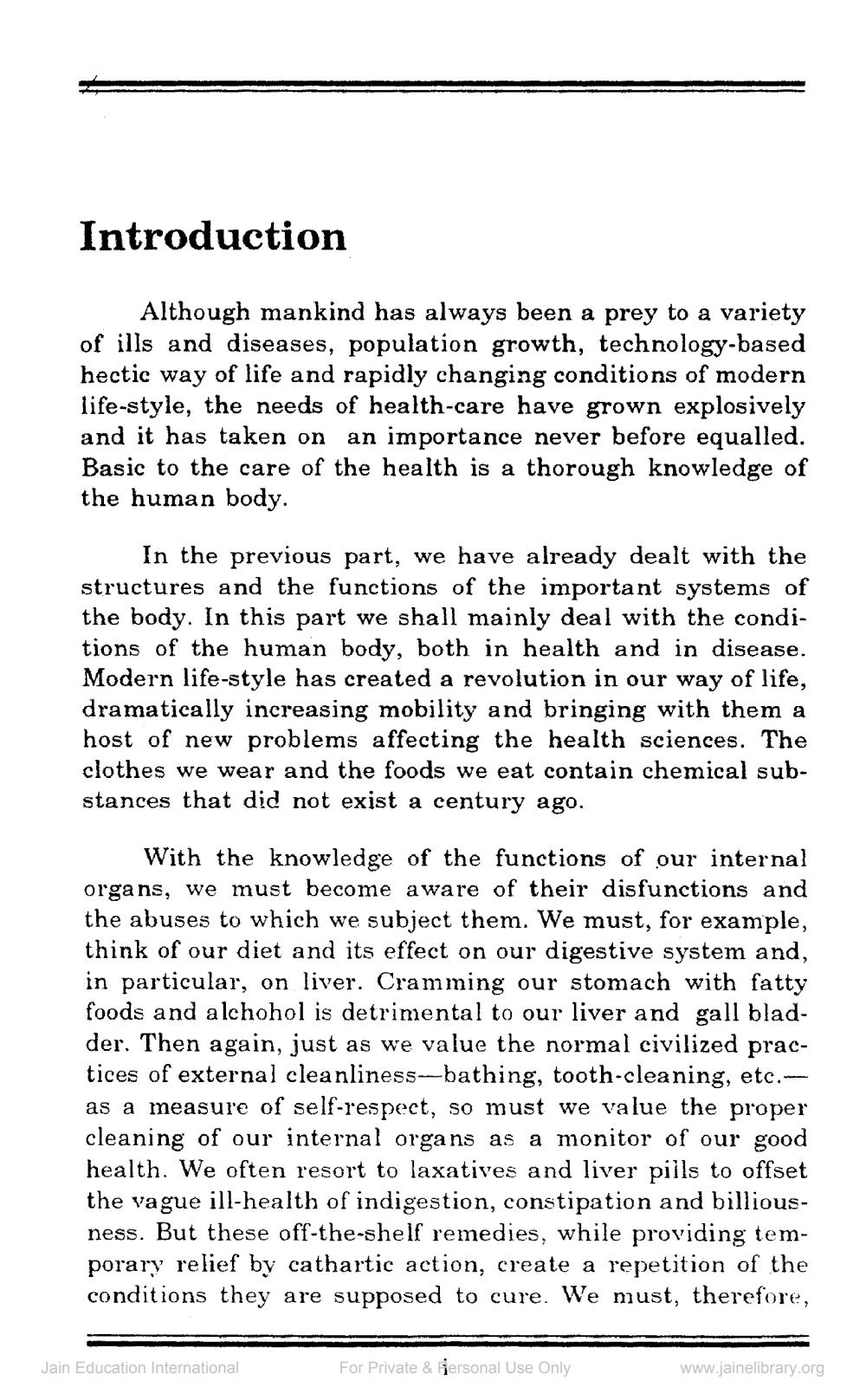________________
-
Introduction
Although mankind has always been a prey to a variety of ills and diseases, population growth, technology-based hectic way of life and rapidly changing conditions of modern life-style, the needs of health-care have grown explosively and it has taken on an importance never before equalled. Basic to the care of the health is a thorough knowledge of the human body.
In the previous part, we have already dealt with the structures and the functions of the important systems of the body. In this part we shall mainly deal with the conditions of the human body, both in health and in disease. Modern life-style has created a revolution in our way of life, dramatically increasing mobility and bringing with them a host of new problems affecting the health sciences. The clothes we wear and the foods we eat contain chemical substances that did not exist a century ago.
With the knowledge of the functions of our internal organs, we must become aware of their disfunctions and the abuses to which we subject them. We must, for example, think of our diet and its effect on our digestive system and, in particular, on liver. Cramming our stomach with fatty foods and alchohol is detrimental to our liver and gall bladder. Then again, just as we value the normal civilized practices of external cleanliness-bathing, tooth-cleaning, etc.as a measure of self-respect, so must we value the proper cleaning of our internal organs as a monitor of our good health. We often resort to laxatives and liver pills to offset the vague ill-health of indigestion, constipation and billiousness. But these off-the-shelf remedies, while providing temporary relief by cathartic action, create a repetition of the conditions they are supposed to cure. We must, therefore,
.
Jain Education International
For Private & jersonal Use Only
www.jainelibrary.org




